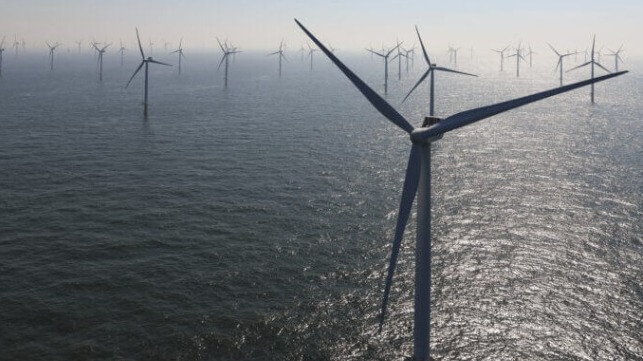Belgium Detected Russian Spy Ship at its North Sea Wind Farms

Belgium on Tuesday said that it had also detected a Russian spy ship apparently surveying its offshore wind farms following a similar report by the Dutch Military Intelligence and Security Service that it had chased away a Russian spy ship from the country’s offshore wind farms. Analysts sought to downplay the incidents while others noted that offshore wind power is an important and growing part of both countries' energy infrastructure.
"The presence of Russian ships in the North Sea is not prohibited, but we monitor them closely,” wrote Vincent Van Quickenborne, Belgium’s Minister for the North Sea in a statement detailing the encounter. “We do not know the exact motives of this Russian ship, but we should not be naïve. Especially if they behave suspiciously near our wind farms and other critical infrastructure. The passage of the Russian ship is undoubtedly part of the wider context of the Ukraine war.”
According to the report, Belgian authorities detected an unidentified Russian vessel near their offshore wind farms on November 17. The vessel had switched off its AIS signal which the Maritime Information Crossroads which monitors Belgium’s territorial water reported as suspicious behavior. The Navy and Coast Guard were sent to investigate but the Russian vessel had departed by the time they reached the location. It is uncertain if it was the same “spy ship” that the Dutch said they had also detected in their waters.
A specialist in the Belgian intelligence services downplayed the event to the Belga news agency. They quoted Kenneth Lasoen as saying this type of thing happens constantly in the North Sea. He said they believe the Russians are trying to intercept communications as part of their intelligence gathering.
Van Quickenborne said that Belgium was communicating with Moscow about the incident through “the usual channels.” Reuters reports that Moscow has so far ignored the reports from both the Netherlands and Belgium.
Both countries have a large and growing offshore presence for energy generation. Belgium currently has over 300 installed and operating wind turbines in the North Sea with a capacity of 2.2 GW. The country is adding four new wind farms to the dozen that it already has with a goal of expanding to 3.15 to 3.5 GW.
The Netherlands has a larger offshore wind present currently with over 8 GW of capacity. By 2030 the country is looking to more than double power generation from offshore renewable sources and possibly reach as much as 70 GW of offshore wind power by 2050. The Netherlands intelligence services speculated that the Russians could also have been surveying undersea cables and pipelines as targets for possible sabotage.
After the damage to the Nord Stream pipeline and various reports of suspicious activity, Belgium had already required stricter security plans from the operators of the wind farms and other North Sea infrastructure. Van Quickenbourne said they would continue and increase the security efforts.

that matters most
Get the latest maritime news delivered to your inbox daily.
"Last year, we already allocated a budget for new state-of-the-art software to better detect and monitor suspicious activities in our North Sea,” he said. “The new Maritime Security Act has been in force since January 1. This makes it possible, among other things, to provide camera surveillance at sea, in particular on the windmills to which this suspicious ship seemed to pay special attention."
The EU working with NATO also launched a new joint working group. The focus is on reviewing and strengthening security for Europe’s infrastructure including its energy assets.
